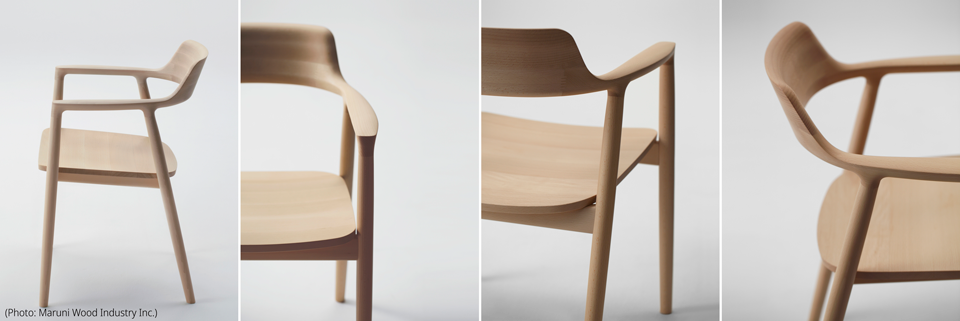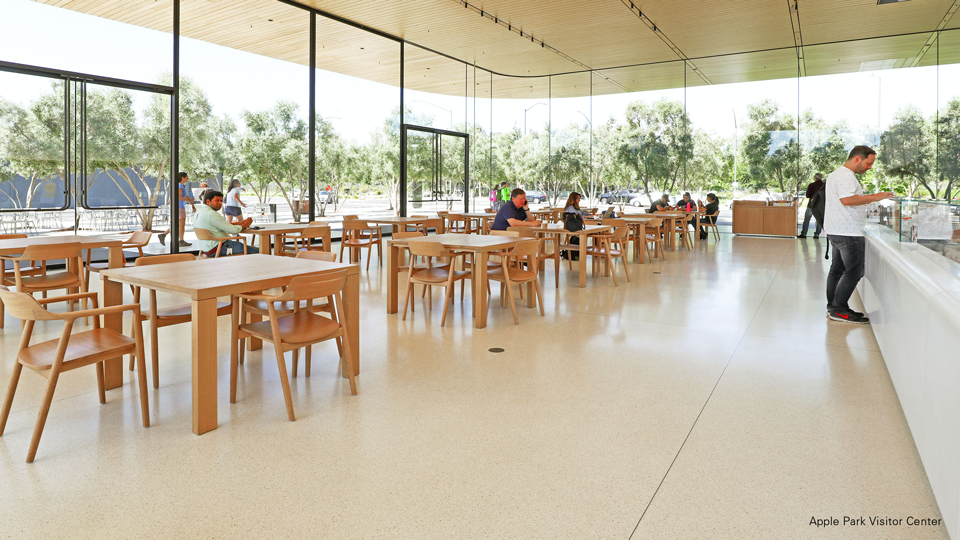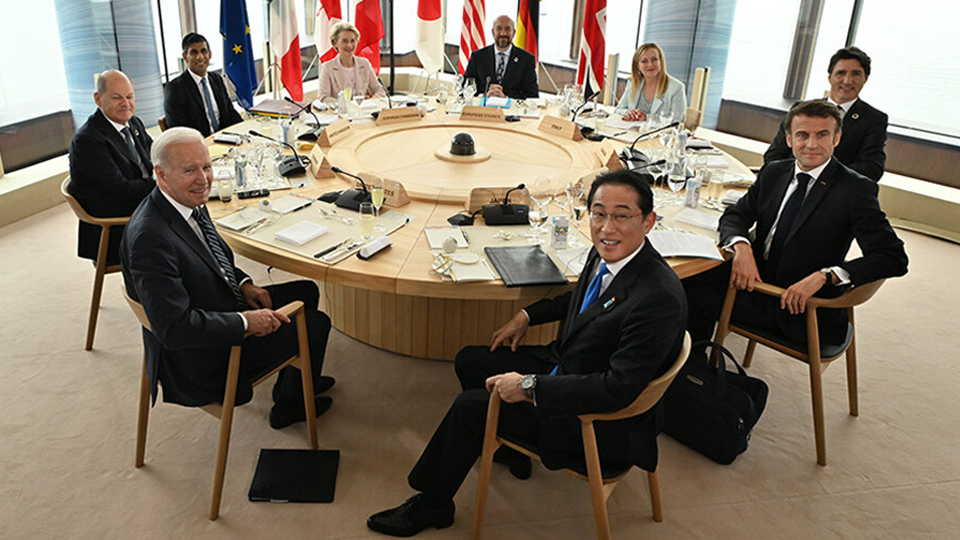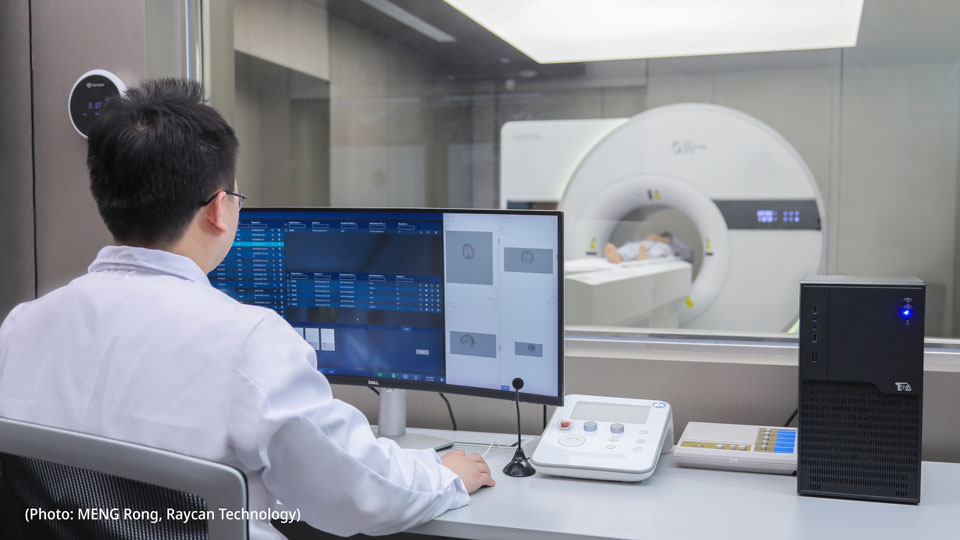Japan is renowned for its rich heritage in traditional crafts, passed down from generation to generation. Maruni Wood Industry Inc. (“Maruni”) – founded by Takeo Yamanaka – has been a key player in Hiroshima’s traditional wood-craft scene for almost a century, producing exquisite furniture that today blends timeless elegance with modern functionality.

Adapting traditional craftsmanship to fit a new industrial landscape
Takeo Yamanaka studied mechanical engineering, but his true passion was wood. Fascinated by its mysterious properties, he developed a technique to bend wood – a uniquely difficult technique to master at the time. It was a technique that would help revolutionize Japan’s traditionally hand-carved furniture industry.
Maruni quickly and successfully transitioned from labor-intensive handcrafting to modern machine-based manufacturing, all the time keeping focus of its core values – quality and traditional beauty.
The fusion of traditional skills and modern technology has earned Maruni – and its timeless pieces of beautifully carved furniture – a reputation for excellence worldwide.
The road to international stardom
By the turn of the century, Maruni was setting its sights on overseas markets. “We wanted to bring furniture from Japan to the whole world,” explains Maruni.

In 2005, the company initiated a three-year project, “nextmaruni”. The venture really showcased its willingness to push boundaries and experiment with new designs. Maruni invited 12 designers from across the world to come up with innovative chair designs, inspired by Japanese aesthetics but catering more to a Western audience. Maruni itself would concentrate exclusively on the manufacturing process.
In 2008 – with the aim of becoming a truly international name – Maruni invited Japanese designer Naoto Fukasawa to produce and launch its “MARUNI COLLECTION”, the perfect fusion of Japanese aesthetics, and timeless natural wood design.
Maruni took the collection to the “Salone del Mobile Milano” – the largest trade fair of its kind in the world – where it proved a huge success.
The brand “Maruni” had gained a firm foot hold on the global market.
A strategic approach to penetrating new markets
In 2018, the company established “Maruni Global Branding”, a subsidiary company responsible for developing overseas sales channels and branding for Maruni’s products.
“We don’t let just anyone sell our products! We select potential import destinations from buyers we meet at exhibitions. We visit them to see how their stores are set up. We check the ambiance and look at what other brands they carry,” explain Maruni.
Today, Maruni is exporting its products to more than 30 countries.

Intellectual property – a powerful tool
Maruni first became really aware of the importance of intellectual property (IP) protection after receiving a warning letter from a local company in one of its export markets. According to the letter, Maruni’s products were infringing on the company’s design rights.
"Although we did not agree with the other party's argument, we ended up incurring many unexpected costs, such as attorney's fees, to resolve the matter."
Maruni
Since then, it has adopted a far stronger policy to protecting its IP rights, using WIPO's Madrid System (the international trademark system), in conjunction with WIPO's Hague System (the international design system), to secure comprehensive cover.

Maruni’s first corporate trademark was derived from curved wood, showcasing its focus on craftmanship. With horizons expanding ever further into new overseas markets, the company adopted the “Maruni” letter-based logo, simply conveying the company’s name.
Expanding reach through international trademark protection
Maruni has harnessed the power of IP to protect its brand across borders and export its furniture right across the globe.
Before deciding where to seek cross-border protection, Maruni conducted simple trademark searches, and carefully considered factors such as the feasibility of enforcing its rights in specific markets, filing and administrative costs, and more.
Using WIPO’s Madrid System, it has successfully secured protection of the brand “Maruni” in Canada, the European Union, Norway, the Republic of Korea, Singapore, Switzerland, the United Kingdom, and the United States of America, by filing a single international trademark application.
It’s international trademark registration 1511877, is protected in Class 20 of the Nice Classification – the classification used for international trademark registration – which covers a host of furniture-related goods. Find out more about classification of goods and services.

Today, with brand recognition growing so quickly, Maruni faces an ever-increasing risk of infringement and counterfeiting.
"The solid and effective IP protection provided by WIPO’s international trademark system has proved essential to our corporate activities, ensuring that both our brand and our products – our most valuable business assets – are safe."
Maruni
A future full of promise
Sustainability and minimization of its carbon footprint are high on Maruni’s agenda.
"We believe it is essential to act from a sustainable perspective throughout the production process, from manufacturing and quality control right through to delivery cycles," says Maruni.
"We will continue to manufacture high quality and exquisitely designed wooden furniture that we hope will still be loved right across the world 100 years from now, enriching everyday life with beauty."
About the Madrid System
The Madrid System is a convenient and cost-effective solution for registering trademarks in up to 130 countries by filing one application, in one language, and paying one set of fees.


